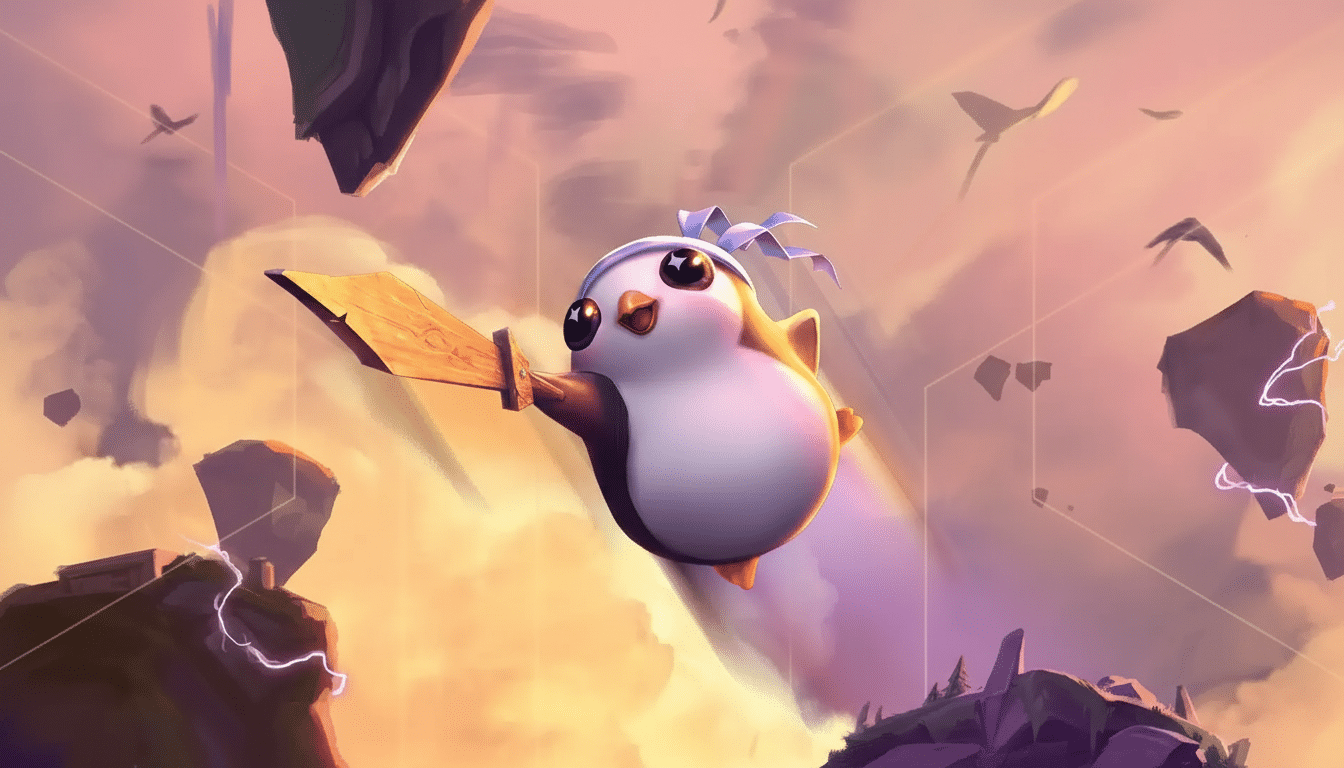Berlin-based AI gaming startup Born has raised a $15 million Series A to rapidly scale the new category of AI “social” companions designed to increase the quality of real life relationships, rather than competing with them. The round — which was led by Accel with participation from both Tencent and Laton Ventures — brings the company’s total funding to $25 million, as it scales its flagship virtual pet app and gears up to launch a second product for older teens and young adults.
Born’s most famous title, Pengu, has over 15 million users worldwide, the company says. Instead of focusing on a one-to-one chatbot, Pengu becomes co-parented: two users bring up and play mini-games with one AI, driving users toward cooperative goals and mutual check-ins. It’s a freemium app with an optional Pengu Pass subscription; the company has not shared paid conversion.

A social-first spin on AI companionship
Born contends the next generation of AI companions won’t reside in lonely chat windows. Its operating idea is that shared experiences with AI — being joint owners of a pet, doing missions together, co-creating content — can create a catalyst for human-to-human connection and combat the isolating dynamics that have been the defining feature of many existing “AI friend” products to date.
To underpin that, the startup is building a character engine that’s built on top of consistency (consistent personality), long-term memory and growth over time. All that persistence makes AI characters feel less like one-and-done novelties and more like group projects that you keep for a little longer. Born primarily relies on OpenAI’s large language models and stacks on further safety systems designed specifically for teens and young adults.
Why solving loneliness is a tech problem
The backdrop is stark. The United States Surgeon General has said loneliness and social isolation are a public health crisis, comparable to smoking a pack’s worth of cigarettes a week in terms of a weakened social connection being associated with increased risks of heart disease, dementia and early death. In 2023, Cigna found that 58 percent of U.S. adults say they’re lonely, and that the youngest cohorts are most frequently affected. The World Health Organization has by now established a Commission on Social Connection to mobilize global action.
AI companions are some kind of an awkward fit to this argument. Apps like Replika and Character. AI have demonstrated there’s appetite for digital companionship, but naysayers worry about parasocial loops that will strengthen isolation. Born’s bet is that “companionship” will be healthier — and stickier — when it forces people to coordinate and play with one another, not withdraw from one another, around an AI character.
Product roadmap and expansion in the U.S.
With the new capital, Born will design new characters inside Pengu, such as a “cute” sidekick that also serves as a learning coach. It will also open a New York office for marketing and applied AI research, with head of finance Enrico Dal Re leading the U.S. build out.

Concurrently, Born is developing a second social AI product for people in roughly the 16 to 21 range. Though the details are under wraps, leadership claims it will allow culturally relevant AI companions who act more like friends deeply integrated with youth culture — wrap your mind around sharing short-form video recommendations in user-specific taste across platforms like TikTok or Instagram — and motivating creators to remix or circulate their AI characters in ways that support network effects.
Monetization, safety and design guardrails
Pengu adheres to the classic consumer model, like most of the other fabulous models in this series: free to start, rewarding to subscribe. Industry data from companies like Sensor Tower indicate that conversion to mobile entertainment subscriptions tends to fall in the low single digits, making retention and differentiated value key. Born’s social-first mechanics — shared progress, co-op missions, persistent characters — are crafted to increase cohort stickiness beyond the novelty spike.
Serving teenagers does include reasonable safety and privacy concerns. Born says it applies extra moderation layers on top of the base models; it aligns its products (targeted at a 13+ audience), controls, and settings for older teens and is building in consideration of existing frameworks, such as U.S. guidance on online youth safety, and the UK’s Age Appropriate Design Code. Data handling, content filters, and escalation paths will have to be transparent as the company grows in the U.S. and EU.
Competition and investor lens
Consumer AI is a crowded and fast-moving space, with pure chat companions, agentic assistants, and avatar-first experiences jostling for attention. Born distinguishes by grounding in shared experiences and co-ownership, evocative of the social dynamics that allowed legacy virtual pets and casual games to succeed at scale, but updated with generative AI and memory.
Investors participating in the new round point to the team’s history of building youth-centric charting apps — Born’s founders previously ran Slay, a social app focused on compliments — and a vision to define a new consumer category around emotionally intelligent, socially shared AI characters. If Born can turn massive top-of-funnel engagement into healthy subscriptions without devolving into exploitative design, it might establish a better model for AI companionship.
The takeaway
AI pals aren’t going away; the question is what behavior they normalize. Born’s $15 million raise is a bet that the future is social-leaning: AI characters as accelerators of friendship, not replacements for it. The coming year — new characters, a U.S. presence and a youth-oriented debut — will reveal whether the social design can truly scale, keep users safe and make them feel, for real, less alone.

